Forgetfulness happens to everyone from time to time. After all, we’re human. But what causes memory loss and forgetfulness?
And for older adults, when does mild forgetfulness or age-related forgetfulness become more than just a normal part of aging? These questions can be tough to answer, but knowing the difference between each is paramount to living a healthy life.
Why?
Recognizing the difference between general memory loss and forgetfulness versus mild cognitive impairment — and forms of dementia like Alzheimer’s disease — can help you make better decisions for life’s journey.
Village Green here: we’ve heard the question, “What causes memory loss and forgetfulness?” time and time again. We decided to answer that question here to empower you to make the right decisions for you and your loved one with memory loss.
In this article, we’ll discuss:
- General facts about memory and how it changes with age
- A comparison of age-related forgetfulness and dementia
- Factors that affect our memory
- Comparing age-related forgetfulness and dementia
- A definition of mild cognitive impairment
The facts about memory and how it changes with age
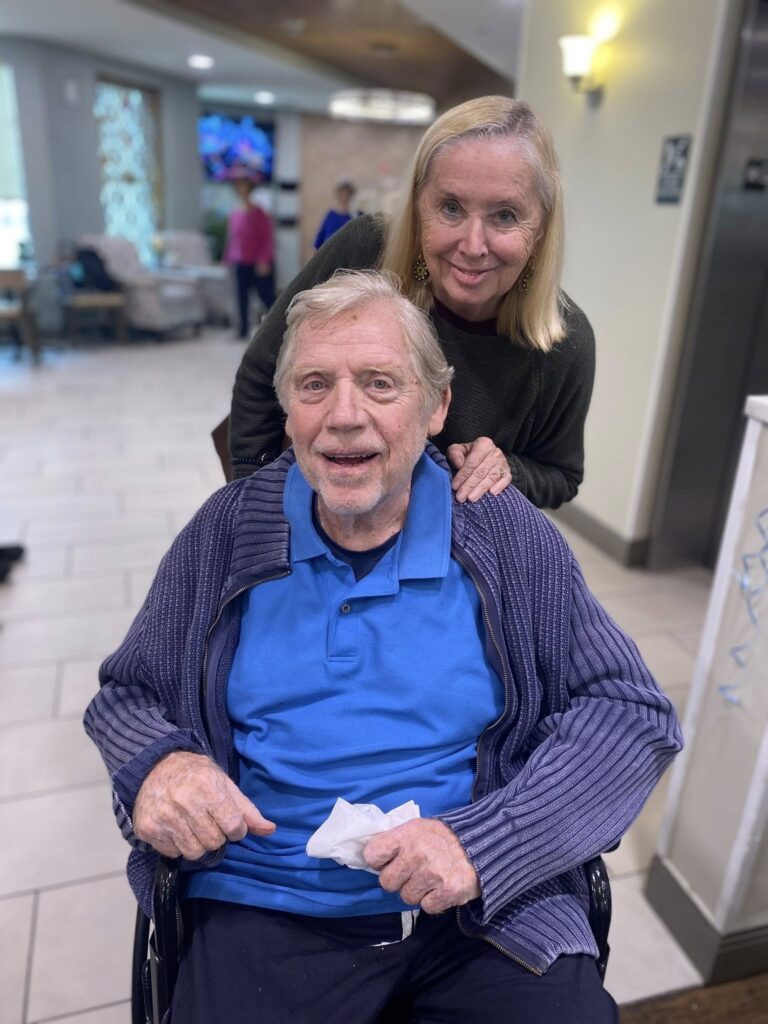
As people grow older, changes occur in all parts of the body. Ironically, we often forget that our brain is also part of our body.
As a result, some people may notice they don’t remember information as well or as fast as they used to when they were younger. When we grow older, our memory changes.
We may begin to misplace our keys, forget to pay a bill, or even mistake the names of people we recently met. These signs of mild forgetfulness aren’t serious memory problems worth a clinical diagnosis.
But, while mild forgetfulness may be common at any age, memory lapses become a problem when forgetfulness prevents us from being able to do everyday tasks such as driving, using a phone, and remembering how to cook and use regular household items.
When memory problems impact the ability to engage in activities of daily living (ADLs), you’ll want to reach out to a doctor.
A few signs that memory loss may warrant a conversation with a doctor include the following:
- Repeating the same question multiple times in a row
- Losing your way in places you once thought were familiar
- Finding yourself experiencing challenges with navigating recipes or directions
- Becoming more confused about time, people, and places
- Eating poorly, not bathing, or behaving in an unsafe manner.
If you notice one or more of these issues in yourself or a loved one, you may be experiencing noticeable changes in your memory. We recommend reaching out to a doctor to perform tests and assessments that will help determine the source of the memory problems.
What’s more, healthcare providers will be able to recommend to you the right specialist — such as a neurologist or gerontologist — who can point you in the right direction for your memory care-related needs.
A healthcare provider can provide you with the right medical advice and even potentially set you up with opportunities to participate in clinical research to better understand the cause of your memory problems.
Fast tips for dealing with forgetfulness
Notice memory issues in yourself or a loved one already? These fast tips for managing forgetfulness and memory loss may help you stay healthy, better cope with changes in memory, and improve your mental functioning.
- Try learning a new skill.
- Plan and execute a daily routine.
- Plan tasks, make to-do lists, and use memory tools like calendars, notes, and alarms to alert you of time-sensitive deadlines.
- Place frequently used items — like keys, wallets, eyeglasses, and water bottles — in the same place each day.
- Engage your mind and body with exercise and other activities.
- Get involved in your community by volunteering in a local social organization.
- Spend time with cherished loved ones.
- Do your best to sleep seven to eight hours each night.
- Be mindful of eating a healthy diet and participating in daily exercise.
- Do your best to avoid or limit alcohol and sugar.
Seek out help if you’re experiencing depression and memory loss at the same time.
Factors affecting memory loss and forgetfulness

So, what exactly causes memory loss? The answer isn’t so simple.
Memory loss and forgetfulness are affected by factors unrelated to dementia and normal aging. For example, medical conditions — such as depression or blood clots — can cause memory problems.
Once these conditions are addressed, memory problems often go away. With that said, factors that may cause memory problems include:
- Head injuries (such as concussions or traumatic brain juries (TBIs))
- Brain-related health issues, such as blood clots, tumors, or infections
- Endocrine, urinary, and digestive system issues such as problems with the thyroid glands, liver, and kidneys
- Medication side effects
- Mental health issues such as anxiety and depression
- Sleep-related issues
- Alcohol and drug misuse
- Deficiencies in key vitamins — such as vitamin B12 — and deficiencies in nutrients from whole, unprocessed foods
Also, acute events can cause memory loss. For example, major, traumatic, or stressful life events can cause memory problems. For example, newly retired individuals or individuals who have lost a loved one sometimes experience confusion or forgetfulness.
Though emotions can affect memory, the effects on memory tend to be temporary and improve as stress and emotions fade. Being active, socially engaged, and experiencing a sense of accomplishment by learning and practicing new skills can help improve mood and memory.
If memory problems still persist after a few weeks, reach out to a healthcare professional, as an underlying issue may be the root cause of the memory loss.
Once you’ve determined what’s causing the memory loss, we recommend checking in with your healthcare professional every six to 12 months to on the status of your health and memory loss-related concerns.
A tip about unproven memory treatments
Memory loss is a beast. Diagnosing it can be even more complex.
You may have read about unproven, over-the-counter treatments that claim to cure memory loss and dementia-related memory loss. Be cautious of treatments that claim to cure memory loss overnight.
These treatments may be unsafe, interfere with other medical treatments, or not provide you with benefits. While we’re not clinical physicians, we do recommend reaching out to your physician or primary care doctor before investing in any products that make claims about curing memory loss.
No drugs or lifestyle approaches can prevent Alzheimer’s or dementia, but living a healthy lifestyle can help prevent the causes of Alzheimer’s or other dementia. Here is a 3-pronged approach to leading a healthy lifestyle to help curb memory loss:
- Control high blood pressure
- Engage in regular physical activity
- Make healthy nutrition and dietary choices (and avoid five of the worst foods for memory loss)
Comparing age-related forgetfulness and dementia
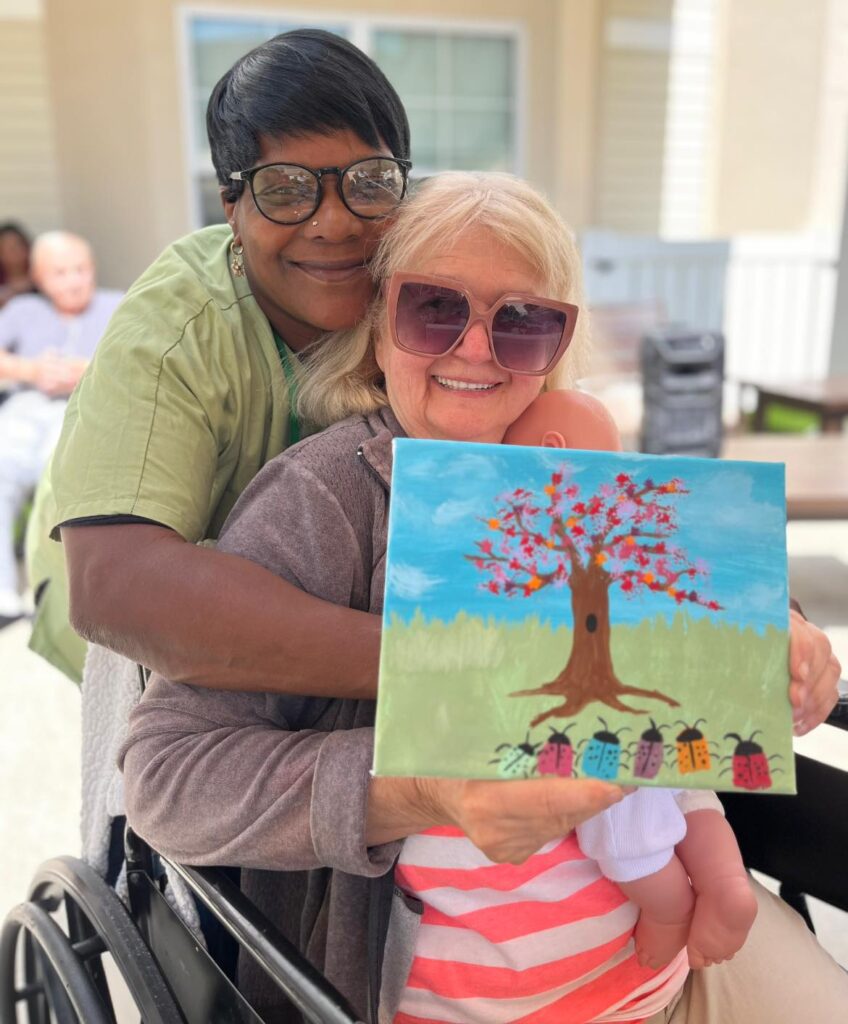
| Age-related memory loss | Dementia-caused memory loss |
| 1. Making questionable decisions from occasion to occasion 2. Forgetting to pay a bill or make a payment Forgetting the day of the week but remembering it soon thereafter 3. Searching for certain words to use 4. Misplacing items on occasion | 1. Making questionable decisions very often 2. Lapsing on paying bills on a frequent basis 3. Forgetting the date and time of the year often 4. Difficulty having conversations with others 5. Misplacing items on a frequent basis — and not being able to find these items often |
Forgetfulness happens with age, but dementia doesn’t always follow in its shadow.
Dementia includes loss of cognitive functioning, such as thinking, remembering, learning, and reasoning. What’s more, a person may experience behavioral challenges, so memory loss may not indicate a dementia diagnosis, nor is memory loss the only sign of dementia.
For example, people with dementia also tend to have problems with language comprehension and production, visual perception, and working memory. Some individuals even experience changes in personality.
With that being said, since dementia is such a large umbrella term, the signs and symptoms may vary depending on the dementia diagnosis. The chart above goes over some of the differences between dementia and typical age-related memory loss.
As such, you’ll always want to talk with a healthcare provider before concluding you or a loved one have dementia or a memory loss-related condition. For example, a doctor will be able to specify whether you indeed have a memory care diagnosis, whether Alzheimer’s disease, Lewy body dementia, frontotemporal dementia, vascular dementia, alcoholic dementia, or another form of dementia.
A word on mild cognitive impairment
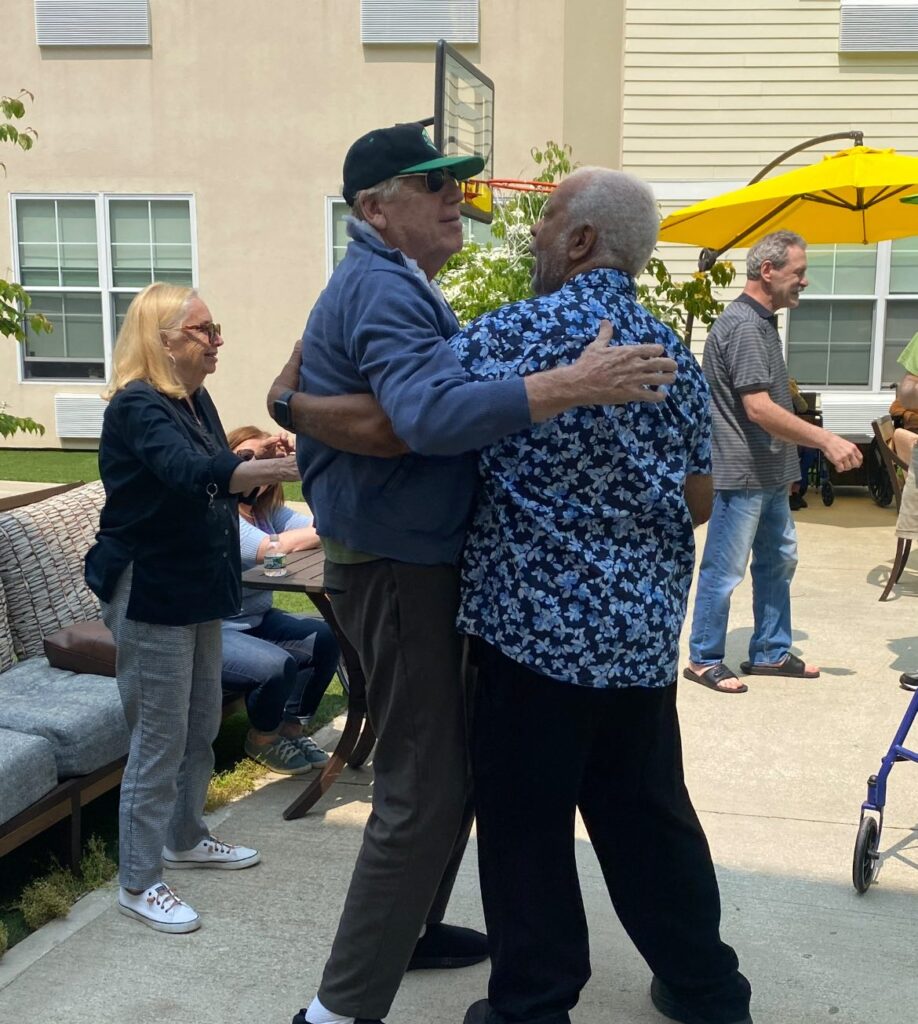
Lastly, we thought we’d mention that not all forms of memory loss fall under the umbrella term of dementia. Some older adults experience what’s called mild cognitive impairment (MCI).
With mild cognitive impairment, an older adult may have more memory or thinking problems than other people their age. With that said, these individuals can still take care of themselves and can carry out their day-to-day tasks.
Nevertheless, talk with your doctor first, because mild cognitive impairment may be the first indicator of Alzheimer’s disease.
Not everyone with mild cognitive improvement will develop Alzheimer’s but if you’re experiencing changes in memory that don’t improve over time and that you think you may constitute as MCI, we recommend talking with your doctor.
Did you know?
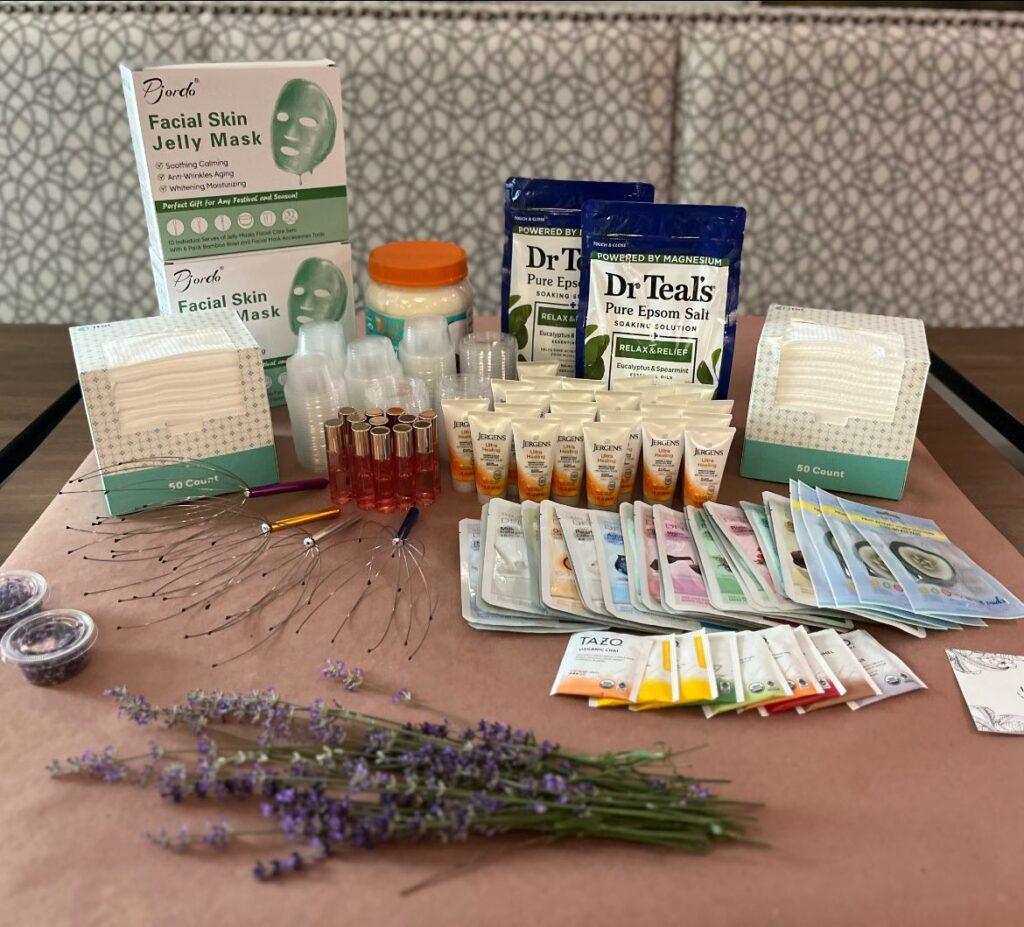
Did you know that October is Mental Health Awareness Month? As we focus on emotional wellness and mental health in October, did you know that a few simple activities — like meditation and spa days — can support overall wellness and help with memory loss?
Want to learn how to set up your own personal spa day? Check out photos from our do-it-yourself day spa session to learn how.
Village Green: A memory care community for older adults with dementia
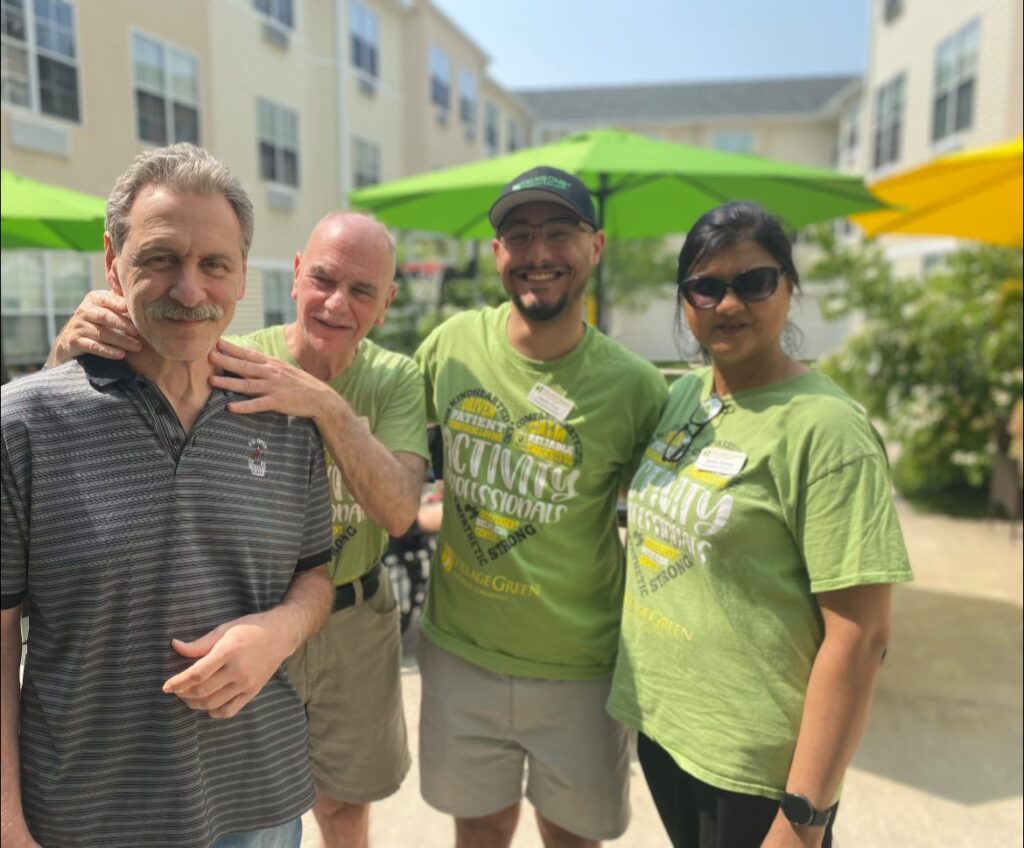
Speaking of mental health, if you’re looking for a place that can help with different types of dementia — or if you just want to pick someone’s brain about common signs of memory loss — our licensed caregivers would be happy to speak with you.
With more than 4% of the nation’s seniors aged 65 years and older being told by a doctor or healthcare professional that they had a form of dementia according to a Statista.com (2025) survey of seniors in 2022, keeping a tab on your mental health as you age is essential.
For more than 20 years, we’ve provided top-quality dementia care for seniors and older adults in Levittown, NY from a variety of backgrounds. If you’re looking for a tight-knit and knowledgeable community that can provide top-quality care for you and/or a loved one with memory loss and/or cognitive decline, we’d be more than happy to help.
Contact us today for a zero-risk, complimentary chat about you and your loved one’s memory-related concerns. We look forward to speaking with you soon!
Skilled. Compassionate. and Loving Memory Care in Levittown, NY: Welcome to Village Green




